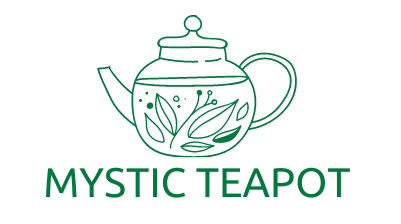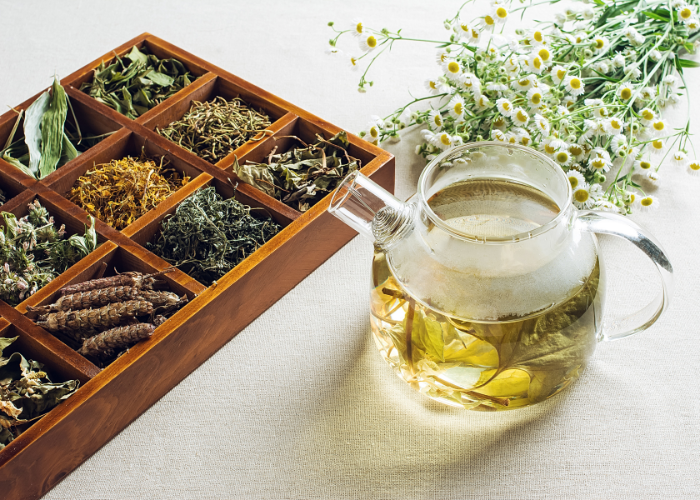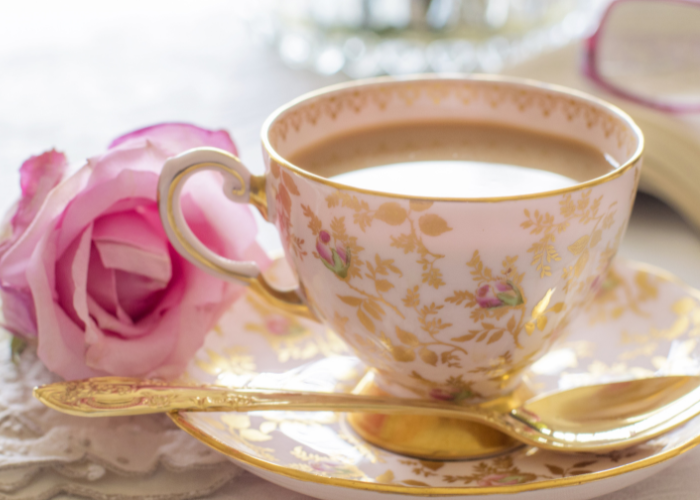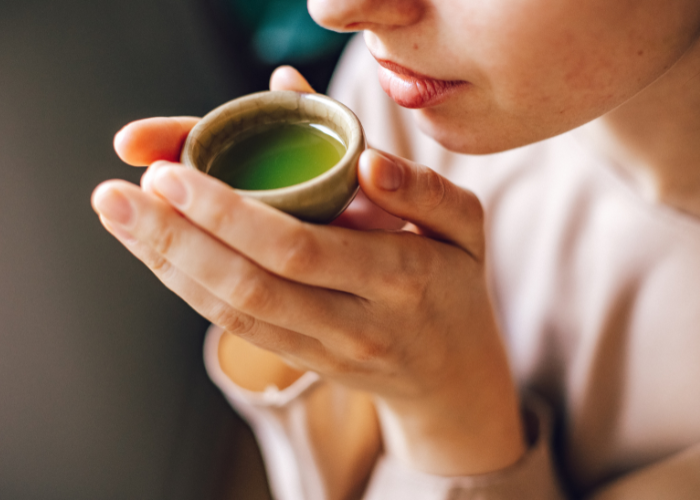I would like to live forever. Ok, maybe not forever. I guess what I mean is I don’t want my skin to shrivel up and look like a prune before its time. If you feel the same way then white tea consumption should be at the top of your list.
A quick web search reveals an extensive list of white tea health benefits, including: heart health, immune system, dental health, weight loss, brain health, colon cancer, wound healing, hair health, inflammation, diabetes and insulin resistance.
Wow,! That’s quite the list. Those are all well and good but personally I’m a little obsessed with teas that combat skin aging so this blog will focus on white tea health benefits for skin in particular.
I’ve come to realize that when it comes to looking ageless, white tea might just be my new best friend. This delicate tea, known for its subtle flavor and light color, is rich in antioxidants and other skin-loving nutrients.
So let’s dive into the wonderful world of white tea shall we?
What is White Tea?
In case you don’t already know, white tea, green tea and black tea are not all different tea types. In fact, they all come from the same plant, Camellia sinensis. The difference is white tea is harvested at an earlier stage. The silvery-haired leaves and buds are hand picked before they’re fully open and have not yet been exposed to sunlight.

Due to lack of sun exposure white tea lacks chlorophyll, the green pigment found in green tea. These leaves are minimally processed, allowing them to retain more of their natural antioxidants and beneficial compounds. In case you’re wondering, white tea does contain some caffeine.
I wouldn’t worry about the caffeine content, however, because camellia sinensis boasts an extraordinarily high level of polyphenols, particularly epigallocatechin gallate (EGCG) – don’t even try to pronounce it.
White tea polyphenols are potent antioxidants that can protect your skin from damage caused by free radicals and environmental stressors. As far a tea constituents go, polyphenols are the best for skin health!
White Tea Benefits to Slow Skin Aging
In my opinion, one of the most compelling benefits of white tea is its ability to slow down the aging process of your skin. Brace yourselves, I’m about to get all sciency. Studies show that the antioxidants in white tea can help combat oxidative stress, which is a major contributor to premature skin aging.
Like this study about white tea’s skin wound healing process. It states that white tea has “a protective effect against wrinkles, sunburn and UV damages on the skin.” Full disclosure, they studied white tea extract in this case but it turns out the active compound EGCG can be found abundantly in cup of white tea as well.
If that’s not enough, another study in the Journal of Nutrition demonstrated that drinking white tea regularly can improve skin’s resistance to the collagen breakdown caused by harmful UV rays. UV exposure is the number one cause of skin aging overall and can lead to unsightly sunspots and hyperpigmentation. No thank you.
By incorporating white tea into your routine, you can potentially reduce these effects and keep your skin looking healthier and more youthful. I don’t know about you but I’ll be making drinking white tea a habit.

The Art of Tea: How to Brew White Tea Properly
Now that I’ve sold you on the health benefits of white tea, it’s important to brew it properly. You want to reap all the benefits of this precious beverage for your skin (and your overall health). Here’s a simple guide to brewing the perfect cup of white tea:
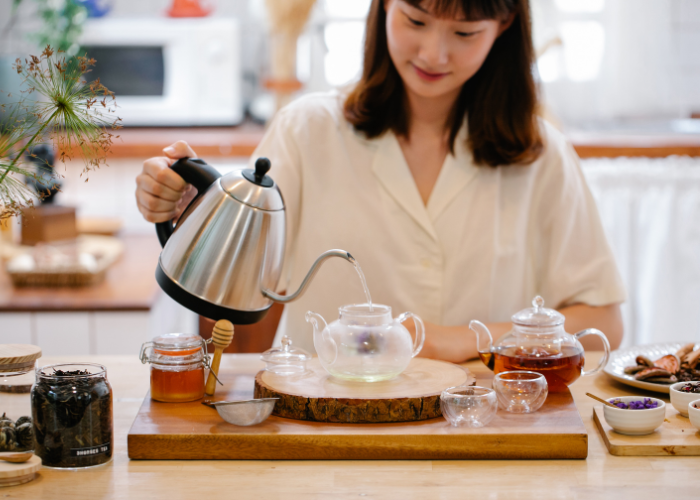
Water Temperature:
Heat water to around 175°F (80°C). Avoid boiling water as it can scald the delicate leaves and result in a bitter taste. Trust me on this. I’ve made this amateur mistake and it can really make your tea undrinkable.
Pro tip: You can actually buy a tea kettle with setting specifically for white tea. I was overjoyed when I discovered this feature. Otherwise you’re flying blind unless you’re actually checking your water temperature with a thermometer. Believe me, this is much easier.
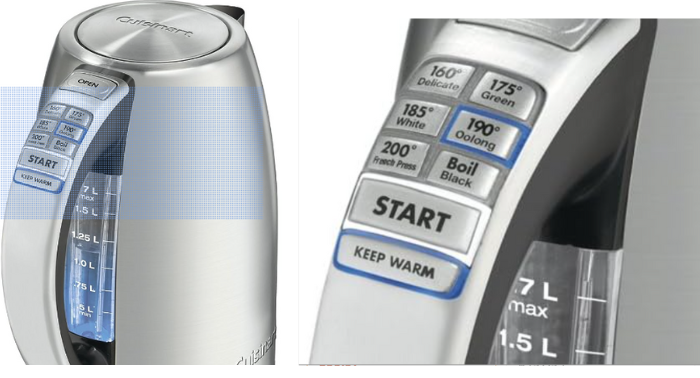
Tea to Water Ratio:
I prefer loose leaf teas because these tend to be higher quality. Use approximately 1 teaspoon of white tea leaves per cup of water. Use less or more, according to your taste preference. If tea bags are you thing then all you need to get right is the water temperature.
How Long to Steep White Tea for Maximum Antioxidants
Steep the tea for 2-4 minutes. Anything less and you’re not going to get all the antioxidants and the rich flavor. Anything longer than four mintues and you may end up with a bitter taste. That’s because unlike black tea, white tea requires a shorter steeping time to prevent bitterness. Now you know.
In case you’re wondering if white tea can be made into cold tea infusions the answer is no. But you can brew white tea and chill it with ice cubes. Add some berries (yay flavonoids!) to make a delicious beverage on a hot day.
Where to Buy White Tea
Finding high-quality white tea is essential to get the health benefits. Look for tea bags or loose-leaf white tea from reputable tea shops or online vendors specializing in premium teas. When purchasing white tea, opt for organic varieties whenever possible to avoid exposure to pesticides and other harmful chemicals.

Now you might be wondering what is the best white tea to buy. Consider trying different types of white tea, such as Silver Needle (Bai Hao Yin Zhen) or White Peony (Bai Mudan), to discover your favorite flavor profile.
Check out some my favorite brands:
White Tea Loose Leaf
White Tea Bags
Drinking white tea every day is a simple yet effective way to support your skin health from within. Alongside a balanced diet and proper skincare regimen, white tea can fight inflammation and contribute to healthy skin and a more radiant complexion.
*This blog is not intended to treat any diseases and for informational purposes only.
